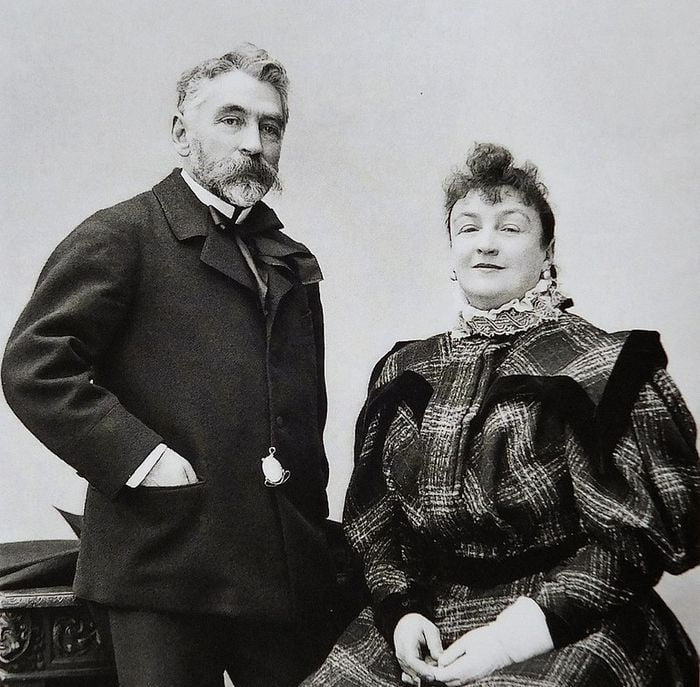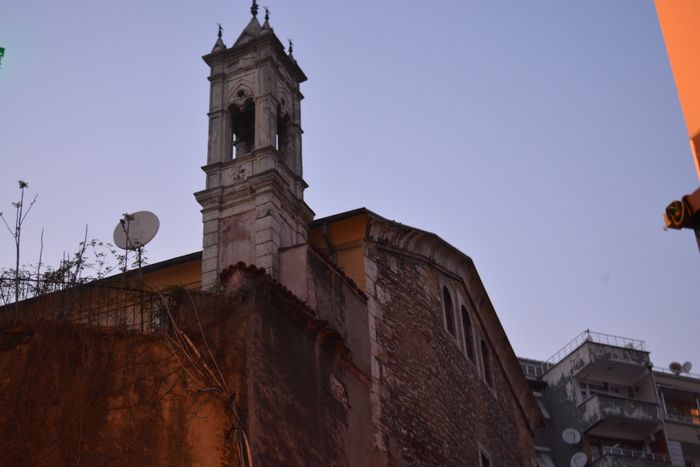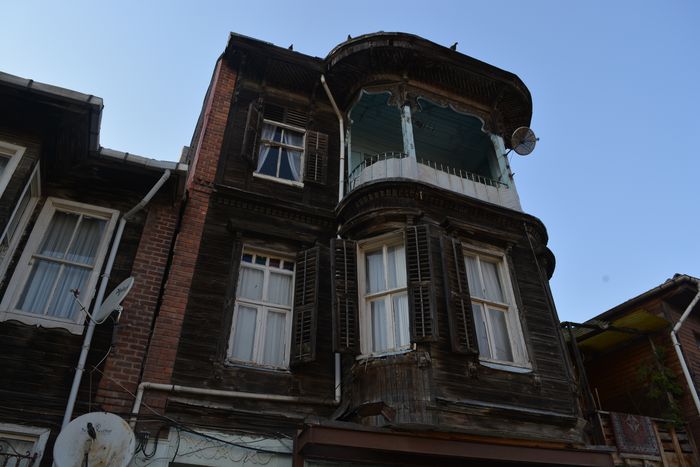He said this openly, cynically, like a man. He was a little ragged street-arab, as tall as a boot, his forehead hidden under a queer mop of yellow hair.
Nobody claimed him, and they sent him to the Reform School.
Not very intelligent, idle, clumsy with his hands, the only trade he could learn there was not a good one—that of reseating straw chairs. However, he was obedient, naturally quiet and silent, and he did not seem to be profoundly corrupted by that school of vice.
But when, in his seventeenth year, he was thrown out again on the streets of Paris, he unhappily found there his prison comrades, all great scamps, exercising their dirty professions: teaching dogs to catch rats in the sewers, and blacking shoes on ball nights in the passage of the Opera—amateur wrestlers, who permitted themselves to be thrown by the Hercules of the booths—or fishing at noontime from rafts; all of these occupations he followed to some extent, and, some months after he came out of the house of correction, he was arrested again for a petty theft— a pair of old shoes prigged from a shop-window. Result: a year in the prison of Sainte Pclagie, where he served as valet to the political prisoners.
Prison and quite
He lived in much surprise among this group of prisoners, all very young, negligent in dress, who talked in loud voices, and carried their heads in a very solemn fashion. They used to meet in the cell of one of the oldest of them, a fellow of some thirty years, already a long time in prison and quite a fixture at Sainte Pagie—a large cell, the walls covered with colored caricatures, and from the window of which one could see all Paris—its roofs, its spires, and its domes—and far away the distant line of hills, blue and indistinct upon the sky.
There were upon the walls some shelves filled with volumes and all the old para¬phernalia of a fencing-room: broken masks, rusty foils, breastplates, and gloves that were losing their tow. It was there that the “politi¬cians” used to dine together, adding to the everlasting “soup and beef,” fruit, cheese, and pints of wine which Jean Francois went out and got by the can—a tumultuous repast interrupted by violent dis¬putes, and where, during the dessert, the “Carmagnole” and “Qa Ira” were sung in full chorus.
Read More about Baba Vanga








